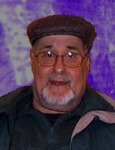
Issue:
5.03
The Gantseh Megillah
Click
icon to print page >
Designed
by Howard - http://www.pass.to
 |
||||
|
|
||||
| March 3, 2004 | ||||
| The Yiddish Theater in New York City, Part 7 | Issue: |
5.03 |
||
| Go
back to: The Gantseh Megillah |
Click
icon to print page > |
|||
Designed
by Howard - http://www.pass.to
|
||||
